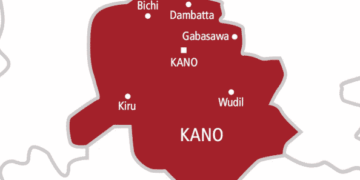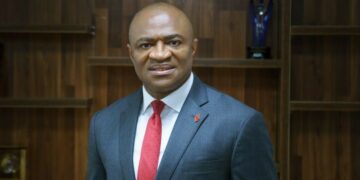As Nigeria deals with ongoing electricity shortages and an unreliable power grid, technology experts are increasingly calling for a data-driven approach to energy generation and distribution.
One prominent voice in this conversation is Daniel Damilare Ezekiel, a data scientist and renewable energy expert, who believes that combining data science with solar technology can transform the country’s power setup.
Ezekiel emphasises, “I actually see renewable energy and data science as two fields that complement each other perfectly. With the help of data analysis, we can improve solar energy production, predict demand patterns, and even find problems before they cause system failures.”
He explains that linking solar installations with smart sensors and machine learning can enable real-time tracking and intelligent adjustments. This innovation could significantly enhance system dependability and reduce downtime, making off-grid and mini-grid systems more sustainable and manageable for communities without reliable power.
Highlighting his ten years of experience, he insists that this teamwork is crucial for Nigeria’s energy independence: “For a country like Nigeria, where power access is still a major issue, this partnership can make a real difference.”
Ezekiel reflects on a successful project at Perfect Seven Solar, where his team used Python and advanced visualisation tools to study energy use and inverter performance.
“The results were eye-opening,” he notes. “We found inefficiencies that were causing unnecessary energy losses. Once we fixed those issues, we improved energy use, lowered costs, and increased client satisfaction.”
His journey from computer training in high school to earning a master’s degree in Data Science from the University of Sunderland demonstrates his commitment to ongoing learning and curiosity. “My biggest advantage has always been curiosity,” he states, encouraging others to spend time each week exploring new technologies.
Addressing the obstacles preventing Nigerian youth from succeeding in the information technology sector, Ezekiel identifies access, infrastructure, and mentorship as major challenges: “There’s no shortage of talent among Nigerian youths, what’s often missing is access and opportunity.”
He calls on policymakers to enhance digital skills, update school programs, and establish innovation hubs to support young inventors. “Once young Nigerians have both the skills and the support, they can lead in innovation,” he adds, sharing his vision for a collaborative future.
With a firm belief that Nigeria’s youth are among the most inventive globally, he argues for a stronger framework to nurture their creativity. “What’s needed is a stronger system to turn that creativity into real impact.”
Ezekiel’s commitment goes beyond technical work; he actively engages in mentoring and sharing knowledge, hoping to inspire the next generation to develop more innovative, more sustainable solutions: “The best way to keep growth in any field going is through sharing knowledge. My goal is to inspire the next generation not just to adopt these technologies, but to push them further.”
In a time when energy shortages and youth unemployment overshadow Nigeria’s development, Ezekiel’s message is clear: a mix of innovation powered by data, driven by youth, and backed by good policies will be crucial to changing the nation’s future.





